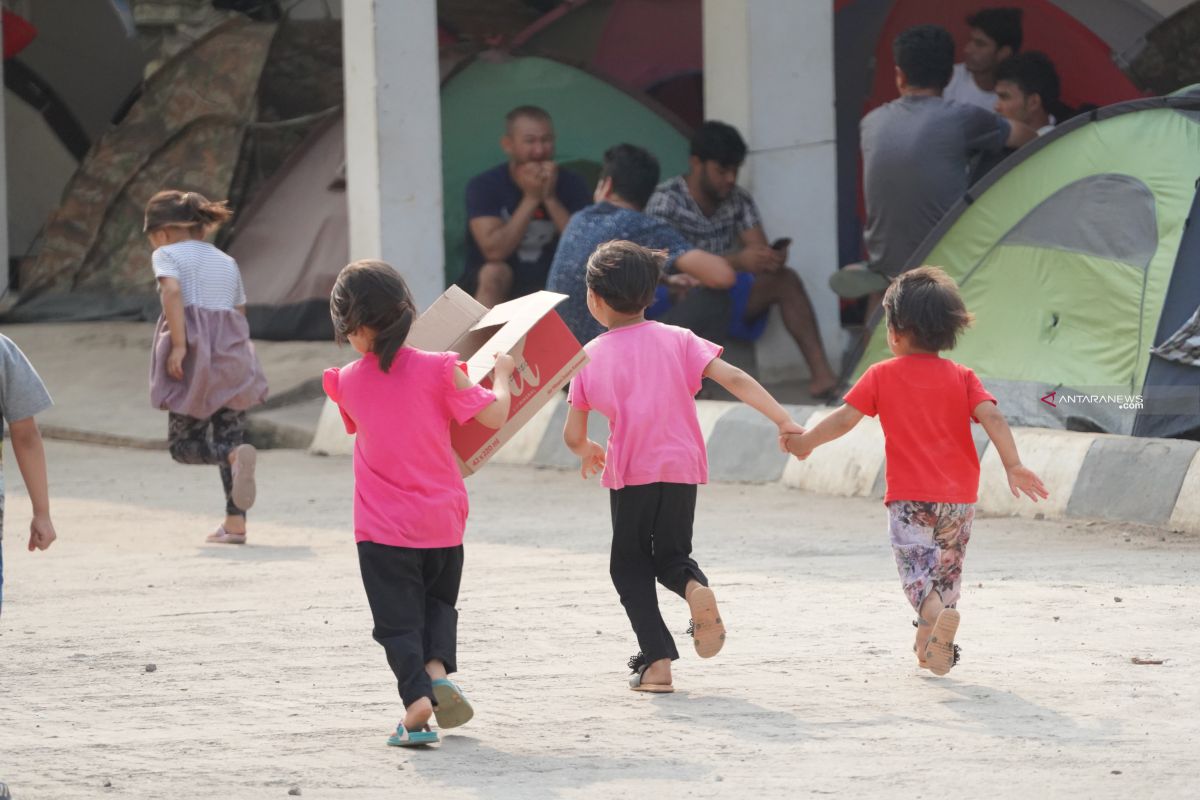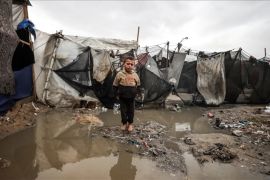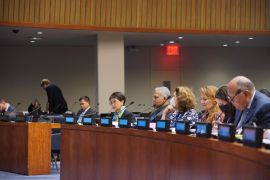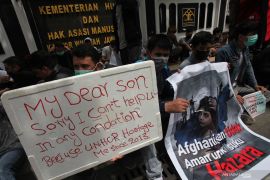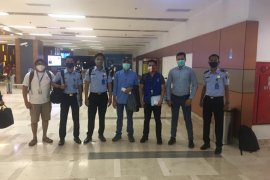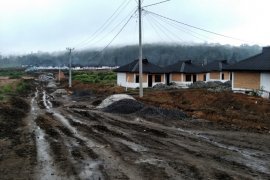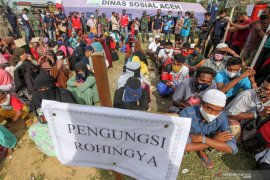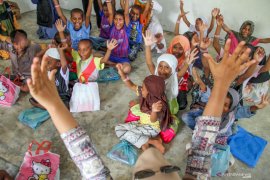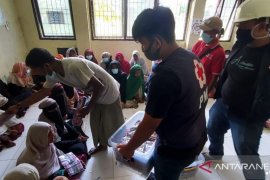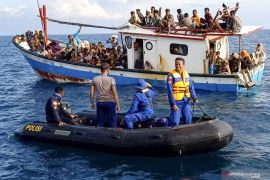“Not every family receives electricity facility. We pay some money for it since we need it. Our baby boy is suffering from fever,” the 37-year-old father Syed Ali Shah Mosawi said.
With no doctor at hand for over a week at the Kalideres refugee camp, the family had to themselves procure medicine from a pharmacy.
“We told officials at the gate that our kid is sick. They never come to see,” Mosawi, who came to Indonesia with his family in March 2018, stated.
In the back of the ex-military building, used for the shelter, five blue and gray portable toilets sent by UNHCR remain locked, and in the absence of water drainage, the entire purpose has been lost for the refugees sheltered at the camp.
"Now we do not have a toilet. Five toilets are locked and cannot be used. For ladies, there is one toilet that they share, but there were no water in the toilet, and men just go outside," he revealed.
In spite of the worsening living conditions, they have run out of choices and have to stay in the camp since the family had sought help from UNHCR and other NGOs but were yet to receive any feedback.
"We heard from someone that we can stay until this month, though the government has not offered food since last month," he noted.
Mosawi, along with 1,150 refugees, are staying in the West Jakarta camp since they have run out of money while awaiting third country resettlement. The Kalideres shelter, supported by the Jakarta government, had become the sole affordable place for these refugees.
Related news: Jakarta to cease humanitarian assistance for refugees by August-end
Related news: Baswedan puts refugee care onus back on UNHCR, central government
After channeling US$18,720 to assist refugees at the Kalideres refugee camp for over 40 days, Jakarta Governor Anies Baswedan announced on Aug 22 that all aid to the camp will cease by August 31, 2019.
"The responsibility to care for refugees lies in the hands of the UNHCR. We, the Jakarta administration, have assisted them this far solely on humanitarian grounds to fulfill their basic requirements, while the UNHCR has yet to do its part,” the governor emphasized.
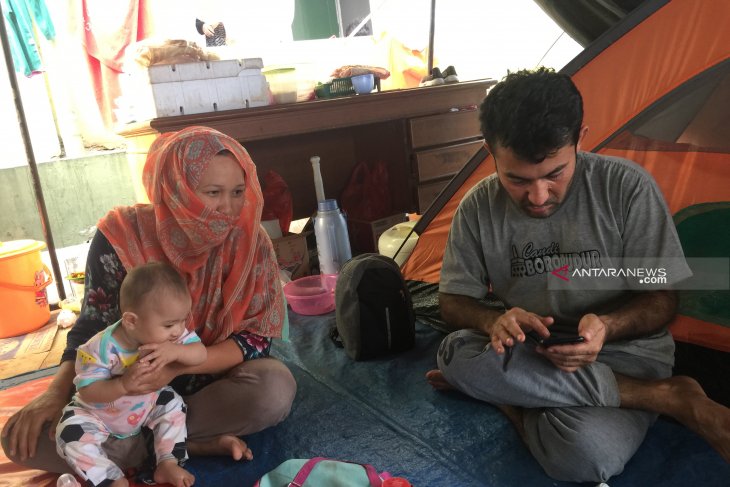
In response to the governor’s statement on returning the onus of caring for foreign refugees back to the UNHCR, its Indonesia director, Thomas Vargas, was all praises for the Indonesian government's initiative to assist refugees currently in Kalideres.
"We are pleased with the government and efforts it is making to attempt to address the situation and to share the responsibility of taking care of refugees," he stated at his office in Jakarta on Monday, Aug 26.
In the face of the imminent shutdown of the West Jakarta shelter within days, Vargas highlighted the importance of the UNHCR working with the government and other partners in the hopes of meeting the immediate requirements of refugees at the Kalideres refugee camp.
"It is clear that the UNHCR cannot do this alone. We need to work with the government and other partners, and we will continue to do that until the site is closed," he noted.
Vargas reiterated that the UNHCR will continue to offer assistance to the refugees after the Kalideres Camp closes on Aug 31 though averring that to build another similar shelter was far from a good choice.
"The last thing that the UNHCR will like to see is for another site to be created," he clarified.
"It is because we have already borne witness to the types of problems arising in these type of sites," he added.
Related news: Cannot have more refugee camps like Kalideres: UNHCR
“The UNHCR and other partners do not have the means to ultimately maintain a site like that,” he stated.
The type of site that Vargas mentioned, which the UNHCR cannot eventually provide, is the only choice of accommodation for 800 adults and 300 children in Kalideres shelter, as they await to leave the transit nation, Indonesia, for neighboring Australia.
Some refugees have remained stranded in Indonesia for six or seven years and are constantly on the lookout for any opportunities to resettle in Australia, despite the country tightening its national policy on accepting asylum-seekers and refugees in the past few years.
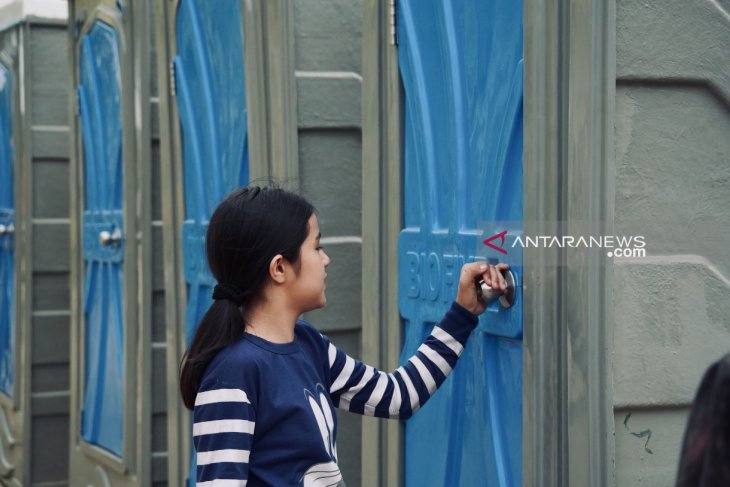
“In the best of times, under one percent of the global refugee population had been resettled to third countries,” he added.
In the meantime, the UNHCR has prioritized cooperation with receiving nations, and to this end, it has collaborated on an ongoing basis with the governments that offer resettlement opportunities, Vargas elaborated.
"The UNHCR views it as a very important protection tool to be able to provide to refugees," he pointed out.
"However, every country has its own policy," Vargas remarked.
"We recognized that, and we always strive to identify new countries that may be willing to offer resettlement places, but it just depends on the national policy of every country," he explained.
Irrespective of the current situation faced by UNHCR to assist asylum seekers, thousands of people, mostly from Afghanistan and Somalia, seeking refuge at the former military building in West Jakarta since last July, will face an uncertain future after its shutdown on Aug 31.
Moreover, the UNHCR does not favor the establishment of another safe haven after Kalideres Camp and other developed destination nations, such as Australia, had been gradually shutting the door to resettle registered refugees.
"We do not know what to do after that. We ran out of everything we had, so we came here," Nabila, a 16-year-old refugee, stated.
Nabila along with her parents and four siblings had departed for Afghanistan and arrived in Indonesia 18 months ago.
"We sold everything in Afghanistan to come here -- home, car, everything we had -- just to be safe,” Nabila, who aspires to be a businesswoman, stated.
Similar to Nabila, most refugees had fled their war-inflicted home nations with hope but are currently on their own facing a grim future.
Related news: Indonesia, Iran discuss refugee repatriation process
Related news: UNHCR affirms resettlement never been an all-encompassing solution
Editor: Sri Haryati
Copyright © ANTARA 2019
